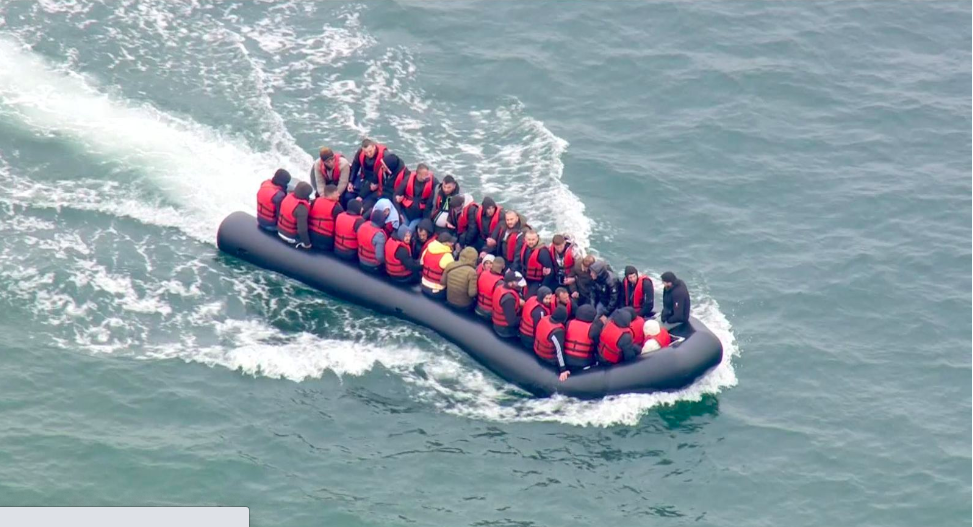In recent years, the UK has struggled to address the influx of migrants attempting to cross the English Channel by small boats. The government’s response has been to negotiate a controversial deal with Rwanda in an effort to curb these crossings. However, despite the introduction of this agreement, thousands of people continue to risk their lives on the perilous journey, demonstrating that the potential threat of the deal has failed to deter them.
The Rwanda-UK refugee deal, a Memorandum of Understanding (MoU) rather than a formal treaty, has been the subject of much debate and criticism. The agreement, which involves the UK sending asylum seekers to Rwanda for processing, has faced opposition from human rights groups, legal experts, and politicians alike. Critics argue that it violates international law and puts asylum seekers at risk, while supporters claim it is a necessary measure to deter people from making dangerous journeys.
The MoU is not legally binding, and its terms remain somewhat unclear. However, it is widely believed that the UK government intends to transfer asylum seekers to facilities in Rwanda, where their claims will be assessed. If their applications are successful, they will be resettled in the UK or another safe country. If unsuccessful, they will face deportation to their country of origin or another third country. This process is intended to discourage people from attempting the dangerous crossing in the first place, as they will not be guaranteed entry to the UK even if they reach its shores.
Despite the deal’s intentions, small boat crossings have persisted. Thousands of people continue to risk their lives, braving treacherous waters and life-threatening conditions, in the hopes of reaching the UK. Immigration Advice Service, a leading UK team of immigration lawyers had earlier reported that two-thirds of asylum seekers in a survey said they were undeterred by the plan and willing to still cross the Channel from France to the UK. The Independent has also reported on this ongoing phenomenon, highlighting the fact that the Rwanda agreement has not had the intended deterrent effect.
Many factors contribute to the persistence of small boat crossings. For one, the root causes of migration – such as violence, persecution, and poverty – continue to drive people from their homes. Additionally, the UK’s reputation as a desirable destination persists, offering hope for a better life and economic opportunities that are unavailable in their countries of origin. Moreover, the lack of safe and legal routes to asylum further encourages desperate individuals to attempt the hazardous journey across the Channel.
Migrants are often aware of the risks involved in the small boat crossings, but they are willing to take these risks in pursuit of a better life. The Rwanda deal has not changed this reality. Instead, the ongoing crisis has highlighted the limitations of the agreement as a solution to the problem. Although the UK government has framed the deal as a strong deterrent, it has failed to consider the complex factors driving migration and the resilience of those who are desperate to escape their circumstances.
As small boat crossings continue, questions arise about the effectiveness of the UK’s current approach to migration. The Rwanda deal, while widely criticized, is not the only policy to have been met with skepticism. The government’s broader “hostile environment” policy, which aims to make life difficult for undocumented migrants in the UK, has also been condemned as inhumane and counterproductive. Critics argue that it drives migrants further underground, making it more challenging to track and support them.
The persistence of small boat crossings highlights the need for a more comprehensive approach to migration, one that addresses the root causes and offers safe, legal pathways for those seeking asylum. As the Independent article and other sources make clear, the Rwanda deal has not deterred those desperate enough to undertake the dangerous journey to the UK.
In addition to reevaluating its approach to migration, the UK must also engage with the international community to address the global challenges driving people from their homes. This will involve working with other countries and organizations to address the conflicts, economic disparities, and environmental crises that are contributing to the migration crisis. By acknowledging the complex factors behind migration and working collaboratively to address them, the UK can hope to develop a more effective and humane response to the issue.
Moreover, it is essential for the UK to uphold its commitments under international law and protect the rights of asylum seekers. This means ensuring that any agreements or policies implemented do not undermine these individuals’ rights to seek protection and due process. The Rwanda deal, as it stands, has raised concerns among human rights groups and legal experts who argue that it violates international law. By re-evaluating the agreement and prioritizing the rights of asylum seekers, the UK can demonstrate its commitment to upholding these principles.
Additionally, investing in effective integration programs for migrants who are granted asylum can help to alleviate some of the challenges associated with migration. By providing language courses, job training, and cultural education, the UK can help newcomers to adapt and thrive in their new home. Such programs not only benefit migrants but also contribute to social cohesion and economic growth in the country.
In conclusion, the persistence of small boat crossings despite the Rwanda deal highlights the inadequacy of the current approach to migration. The agreement has not deterred those desperate enough to risk their lives on the dangerous journey to the UK, and its implementation raises serious concerns about the government’s commitment to international law and the rights of asylum seekers.
Instead of relying on controversial deals and punitive policies, the UK must adopt a more comprehensive and humane approach to migration. This involves addressing the root causes of migration, working collaboratively with the international community, and providing safe and legal pathways for asylum seekers. By embracing these principles and prioritizing the rights and well-being of migrants, the UK can develop an effective and compassionate response to the ongoing migration crisis.
































































